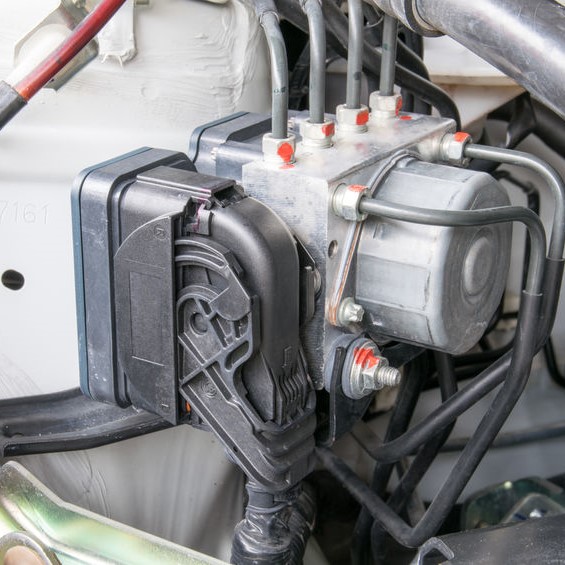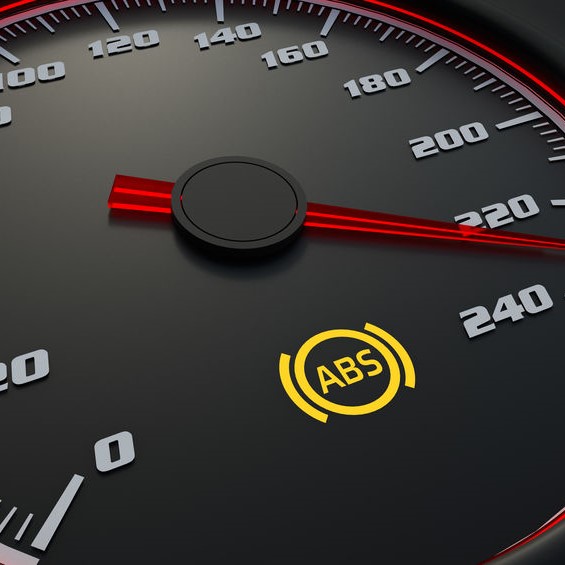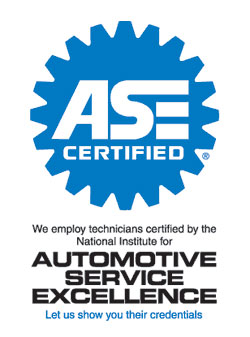
What are anti-lock brakes?
Anti-lock braking system, referred to as ABS, helps the driver steer their vehicle in an emergency braking situation by restoring traction to the tires. This allows the driver to keep control of the vehicle and steer to a safe stop and area. When a vehicle is equipped with anti lock brakes and skidding is stopped, keeping the car from sliding into another vehicle, tree, etc.
Why anti lock brakes are important?
When vehicle brakes lock up, the vehicle typically goes into a skid, taking it longer to stop, diminishing the driver’s ability to safely control and steer the vehicle. This anti-brake system works with wheel speed sensor that monitors each wheel and when the wheels are going into a skid, hydraulic pressure is temporarily reduced.
When the anti-lock brake system engages, there typically isn’t time for the driver to think and react. They will have their foot on the brake pedal already and feel a grinding or pumping motion. This is from the antilock brake pump metering the braking pressure through the valve assembly. The tires will make a screeching noise as they skid.
The anti-brake system is for a panic stop situation and doesn’t stop the vehicle faster. It does allow for the driver to maintain control of the steering, with the goal of avoiding any danger, not go into a skid and slide into the situation.
What are the benefits of anti lock brakes?
An anti-lock brake system coordinates the activity from wheels with sensors. Those sensors regulate the brake pressure as needed so that each wheel operates in a analogous speed range. The benefits of anti-lock brakes are: .
- Slippery Roads: An anti-lock brake system will keep a vehicle from locking up and going into a kid on slippery roads like ice or rains mentioned earlier, an anti-lock brake system prevents lock-ups and skidding, even in slippery conditions.
- Insurance Costs: Because anti-lock brake systems have been thoroughly tested and proven to be an effective safety device, insurance companies offer discounts for safety features on their client’s vehicles.
- Resale Value: Anti-lock brake system raises the re-sale value of vehicle. Without an anti-lock brake system, a vehicle wouldn’t be worth as much resale.
- Traction: An Anti-lock brake system and new technology share traction control system infrastructure, making the build of both features easier in manufacturing.
How should you use anti lock brakes in emergency?
To get the most effectiveness from our anti-lock brake system, you will learn a different technique than you have used with other vehicles before anti-lock brakes were introduced. Much like when you were learning to drive, got to a large empty parking lot and practice braking by driving a speed over 10mph an applying the brakes.
Four-Wheel Anti-Lock Brake System Instructions
- Slam the brakes as in an emergency stop, this stops the skidding that normally would happen.
- You will feel a vibration and hear clicking as brakes come to a stop.
- Do not pump the brakes – that deactivates the anti-lock brake system.
- The anti lock brakes will take effect when you have your foot pressed firmly on the brake pedal while steering.
Rear-Wheel Anti-Lock Brake System Instructions
- In a vehicle equipped with rear-wheel anti-lock brake system, typically trucks, the front wheels will lock up just like the conventional brake system.
- If front wheels appear to lock up, ease pressure on the brake pedal so the front wheels allow you to steer the vehicle to safety.
The car should have an anti-lock brake system warning light on the dash to alert you of any system malfunction. If that light comes on as you drive, the anti-lock brake system is disabled, and the standard non anti-lock brake operation begins.
What are anti lock brakes most effective?
The anti lock brakes are most effective when your tires have good contact with the road and brakes are applied firmly and promptly. The sensors on the wheels of anti-lock brake system detect when wheels are beginning to lock as the driver slams on in an emergency (normal driver reaction). They then reduce the braking power on the locking wheels, helping to maintain traction and help the driver control the steering. This stops the car quicker and safer.

What happens when the anti lock brakes fail?
When the anti-lock brake system isn’t functioning, the tires lose traction, the vehicles goes into a skid, and hydroplaning is likely in a heavy braking condition. The anti-lock brake system is designed with ample indication and warning signs of a problems. As the driver of the vehicle, it is critical to be aware of those indicators and warnings and address them accordingly to avoid this situation.
Many drivers who have driven cars for years before anti-lock brakes were developed and installed often ask, can you turn off ABS brakes? The answer is yes, it is possible, but not recommended. The wheel speed sensors can be removed and will disable the anti-lock brake system, which also will disable the stability control. When the anti-lock brake system is unplugged, it can affect the braking performance adversely as well. Need help with your anti-lock brakes in Venice, FL? Call 941-493-6511 today!


